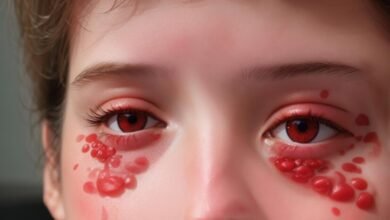Researchers Show that Treatment for Menopausal Women is Fake Therapy

According to researchers, a laser treatment marketed to menopausal women is a sham or phony therapy. The procedure is thought to be dangerous and does not, as claimed, revitalize the vaginal area.
Related: Top 10 Health Benefits of Hugging
Laser Treatment Has No Benefits
The laser treatment was put to the test to see if it may help with vaginal dryness and painful sex associated with menopause. According to the National Health Service, the therapy should only be used for research purposes.
It is still available in few private clinics in the United Kingdom and the United States.
Sexual Gratification
A probe is introduced into the vagina to heat and alter the surrounding tissue during the laser therapy, commonly known as laser rejuvenation.
Clinics believe that by damaging tissue, laser treatment can start the body’s healing process, as well as improve natural lubrication and restore sexual gratification, according to BBC.
Although the therapy can be done in less an hour, it is not without danger. The FDA in the United States has expressed concern that the practice will hurt women.
Burns and scars were reported by some women who had the treatment, according to MedPage.
The research is posted in the Journal of the American Medical Association. It is one of the most comprehensive investigations criticizing the therapy and highlighting its lack of evidence.
This type of research has been requested by the National Institute for Health and Care Excellence (NICE), which wants to know if the therapy is safe and can be recommended for wider usage.
Related: A New Study Confirms that Better Sleep Boosts Your Sex Life
The researchers gathered 85 women to receive either the laser treatment or a placebo surgery, in which the probe was placed but the required dose of energy was not supplied.
There were no major adverse effects reported, but there was no difference in symptom improvement between the two groups at the one-year follow-up.
Another JAMA editorial compared laser therapy to the recent vaginal mesh incident, in which some women were injured by a procedure that was canceled due to safety concerns.
The extensive clinical use of vaginal laser therapy, followed by reports of adverse events and US Food and Drug Administration or FDA warnings, according to study authors Dr. Marisa Adelman and Dr. Ingrid Nygaard, is troubling.
The goods are no longer accessible in the United States, according to the researchers, after a rush to launch vaginal mesh products for the management of pelvic organ prolapse before the completion of thorough randomized studies.
Although clinics’ short-term profitability may be tied to marketing before evidence of efficacy and safety is available, this method shuts any window of opportunity to learn which women benefit from the treatment and which are at elevated risk of damage.
Using a beam of light on the affected area, laser treatments address a variety of ailments. Thailand was reported to be offering laser treatments to men who wanted their private areas whitened in 2018.
Vaginal Dryness
This is the study that the British Menopause Society has been waiting for, according to Tim Hillard, a consultant gynecologist. It is one of the largest randomized studies ever conducted, and it is not supported by the pharmaceutical business.
Hillard went on to say that the data shows that doctors should only use this medicine in clinical trials to gather more evidence. New treatments for menopause symptoms, he added, were also needed and worth investigating.







